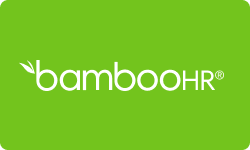Introduction
NetSuite is a cloud-based enterprise resource planning (ERP) software platform designed to help businesses manage their key financial and operational processes, including accounting, financial planning, inventory management, supply chain management, customer relationship management (CRM), and e-commerce.
The platform is fully integrated, meaning that all of its modules are designed to work together seamlessly, enabling businesses to streamline their workflows and improve efficiency.
Oracle Netsuite ERP is a cloud-based solution, meaning that businesses can access the platform from anywhere with an internet connection. This allows for greater flexibility and scalability, as businesses can easily add or remove users as needed and can access the platform on any device.
In addition to its core ERP functionality, NetSuite also includes a range of additional features and tools, such as analytics and reporting, automated workflows, and integrations with other business systems. These features help businesses to gain deeper insights into their operations, streamline processes, and improve decision-making.
Performance at Glance
Oracle NetSuite is a cloud-based enterprise resource planning (ERP) platform designed to help businesses manage their operations more efficiently. When evaluating the performance of NetSuite, several key specifications must be considered, including ease of use, support, ease of setup, functionality, value for money, and G2 rating.
| NetSuite Rating at Glance | |
| | Intuitive user interface and easy navigation with a customizable dashboard. |
| | Offers multiple support channels, including phone, email, and chat. |
| | Offers comprehensive onboarding support and a step-by-step implementation process. |
| | Offers a broad range of HR functionalities with integration options. |
| | Provides a robust set of features at a competitive price. |
| | Positive reviews about features and customer service |
Performance of Oracle NetSuite on these specifications:
Ease of Use
The software is known for its user-friendly interface and intuitive design, making it easy for users to navigate and find what they need. The platform is highly customizable, allowing users to tailor their experience to their specific needs.
Support
It offers a range of support options, including phone and email support, online resources, and a dedicated customer portal. The company also provides a range of training options to help users get up to speed quickly and maximize their use of the platform.
Ease of setup
While setting up Oracle NetSuite can be a significant investment in time and resources, the platform’s highly customizable nature allows businesses to tailor the setup to their specific needs. NetSuite also provides a range of resources and support to help businesses up and running quickly.
Functionality
The highly functional ERP platform provides businesses with a range of features and tools to manage key financial and operational processes. The platform is fully integrated, meaning that all modules are designed to work seamlessly together, streamlining workflows and increasing efficiency.
Value for money
NetSuite is considered a high-end ERP solution. It comes with a correspondingly higher price tag than some other options on the market. However, the platform’s robust feature set and deep functionality make it a worthwhile investment for businesses that need a comprehensive ERP solution.
G2 rating
NetSuite has a strong rating on G2, a leading software review platform, with users praising its ease of use, customizability, and robust feature set. However, some users have noted that the platform can be complex and difficult to set up and that the pricing can be a barrier for smaller businesses.
Features of Oracle NetSuite HR Software
Oracle NetSuite is designed to help businesses manage their operations more efficiently. One of the key factors that sets NetSuite apart from other ERP solutions is its comprehensive suite of features. These features cover a wide range of business functions, from financial management and inventory control to customer relationship management (CRM) and e-commerce capabilities.
| |
User, Role, and Access Management | |
| |
| |
| |
| |
| |
| |
| |
| |
| |
User, role, and access management
It allows businesses to manage user access to the platform through a comprehensive set of user and role management tools. This enables businesses to control who has access to what data, ensuring that sensitive information is kept secure.
Integration
It is designed to integrate seamlessly with other business systems, providing businesses with a comprehensive view of their operations. The platform includes a range of integration tools and features, making it easy to connect with other systems and applications.
Reporting & analytics
It provides businesses with a range of reporting and analytics tools to help them gain deep insights into their operations. The platform includes pre-built reports and dashboards and customizable reporting tools to help businesses generate the insights they need.
Financial statements
It includes a robust financial reporting and statement generation toolset, allowing businesses to easily generate comprehensive financial statements. The platform is designed to streamline financial processes, making it easy to generate financial statements on demand.
Custom reporting
The software lets businesses create custom reports tailored to their specific needs, providing them with greater visibility into their operations. This feature allows businesses to generate insights that are unique to their operations, helping them to make more informed decisions.
Integrations
It is designed to integrate with a wide range of business systems, including CRM, e-commerce, and marketing automation tools. This enables businesses to streamline their operations and gain a comprehensive view of their business processes.
General ledger
It includes a comprehensive general ledger toolset, enabling businesses to easily manage their financial transactions and generate reports. The platform is highly customizable, allowing businesses to tailor the toolset to their specific needs.
Accounts receivable
It has a range of accounts receivable tools to help businesses manage their invoicing and collections processes. The platform includes automated workflows and customizable tools to help businesses manage their cash flow effectively.
Accounts payable
It has a comprehensive account payable toolset, allowing businesses to manage their vendor payments and expenses with ease. The platform includes customizable workflows and tools to help businesses streamline their accounts payable processes.
Reconciliations
It includes a robust reconciliation toolset, enabling businesses to reconcile their accounts quickly and accurately. The platform includes automated reconciliation workflows and customizable tools to help businesses stay on top of their financial processes.
What is NetSuite Payroll?
NetSuite Payroll is a cloud-based payroll management system that is fully integrated with the NetSuite ERP platform. Here are some key points to help you understand the benefits and functions of NetSuite Payroll:
Helps businesses manage their payroll processes efficiently by automating calculations and generating accurate employee paychecks.
The system is designed to be easy to use and customizable to fit the specific needs of each business.
NetSuite Payroll integrates seamlessly with other NetSuite modules, such as HR and financial management, to provide a complete solution for managing all aspects of the employee lifecycle.
The platform offers a range of payroll-related features, including tax management, employee self-service, direct deposit, and benefits administration.
With NetSuite Payroll, businesses can streamline their payroll processes and reduce the risk of errors or compliance issues.
The system provides access to real-time analytics and reporting, giving businesses insights into their payroll data and enabling them to make informed decisions.
NetSuite Payroll complies with local and national regulations, ensuring businesses can stay updated with the latest payroll requirements.
It is a powerful and flexible payroll management solution that can help businesses of all sizes streamline their payroll processes and improve their overall efficiency by integrating seamlessly with other NetSuite modules and providing a range of payroll-related features.
How does payroll work?
Payroll is the process of paying employees for their work. Here is how the payroll process typically works:
Set up employee information
Before rolling the payments, businesses must set up employee information in their payroll system, including their names, addresses, tax withholding status, and other relevant information.
Track time worked
Businesses must track the hours worked by each employee to calculate the salary accordingly. This can be achieved manually or by using a time and attendance management system.
Calculate gross pay
Once the hours worked are tracked, businesses can calculate each employee’s gross pay by multiplying their hourly rate by the number of hours worked.
Calculate deductions
Businesses must also calculate any deductions from employees’ pay, such as taxes, insurance premiums, and retirement contributions.
Net pay calculation
After calculating gross pay and deductions, businesses can determine each employee’s net pay by subtracting the deductions from the gross pay.
Issue paychecks or direct deposits
Finally, businesses must issue paychecks or process direct deposits to pay employees their net pay.
In addition to these basic steps, there are a number of other factors that can impact the payroll process, such as overtime pay, paid time off, and employee benefits. Businesses must also ensure they comply with all relevant labor laws and regulations, such as minimum wage and overtime rules.
How to create advanced custom reports in NetSuite?
NetSuite’s advanced reporting features allow users to create customized reports that provide deep insights into their business data. Here’s how to create custom advanced reports in NetSuite:
Identify reporting requirements
The first step in creating a custom advanced report is to identify the specific reporting requirements, including the data needed, the report format, and any other special considerations.
Create a saved search
Once the reporting requirements are identified, users can create a saved search within NetSuite to query the necessary data. The saved search should include all relevant fields and filters to ensure the data is accurate and comprehensive.
Set up a custom report
After creating the saved search, users can set up a custom report in NetSuite’s report builder. This allows users to define the report format, including the layout, columns, and headers.
Add saved search as data source
In the report builder, users can add the saved search as a data source for the report. This ensures that the report includes the necessary data and is up-to-date.
Customize report layout
After adding the data source, users can customize the report layout, including adding charts, tables, and graphs to provide a visual representation of the data.
Preview and refine report
Once the report is created, users can preview it to ensure it meets their reporting requirements. Users can refine the report by modifying the saved search or adjusting the report layout if any changes are necessary.
Save and distribute report
After the report is finalized, users can save it in NetSuite and distribute it to the appropriate stakeholders. Reports can be scheduled to run automatically on a regular basis or generated on an ad-hoc basis as needed.
Creating custom advanced reports in NetSuite allows users to gain valuable insights into their business data and make data-driven decisions. With NetSuite’s powerful reporting features, users can easily create customized reports that meet their specific reporting requirements.
Top Oracle NetSuite Alternatives
Sage Intacct and Odoo are both viable alternatives to Oracle NetSuite, offering similar functionality with different strengths and weaknesses. Businesses should carefully evaluate their needs and budget when choosing between these platforms to ensure they select the solution that best meets their requirements.
| | | |
| | | |
| | | $20 per app/ per user/ per month |
| Comprehensive suite of financial and operational management tools, including CRM, ERP, and eCommerce | Robust financial management tools with advanced automation features | Flexible suite of business applications that includes CRM, ERP, and project management |
| Designed to support businesses of all sizes, from small to large enterprises | Ideal for mid-sized businesses with complex financial and operational needs | Suitable for small and mid-sized businesses, with modules that can be added or removed as needed |
| Highly customizable, with an open API and the ability to add custom fields, workflows, and reports | Limited customization options, but offers a library of pre-built integrations and workflows | Highly customizable, with an open-source code base and a range of modules and apps available |
| | | |
Sage Intacct and Odoo are two popular alternatives to Oracle NetSuite, offering similar functionality in a different package. Here’s a closer look at each platform:
Sage Intacct is a cloud-based financial management solution offering various features, including accounts payable and receivable, general ledger, cash management, and project accounting. Like NetSuite, Sage Intacct is designed for mid-sized businesses and offers robust reporting and analytics features. One of the key advantages of Sage Intacct is its focus on financial management, with deep functionality in areas like revenue recognition and multi-currency accounting. Sage Intacct is also known for its ease of use, making it a popular choice for businesses looking for a user-friendly accounting solution.
Odoo is an open-source ERP platform that offers a range of features, including accounting, inventory management, CRM, and eCommerce. Unlike NetSuite and Sage Intacct, Odoo is designed for businesses of all sizes, from small startups to large enterprises. One of the key advantages of Odoo is its flexibility, allowing businesses to customize the platform to meet their specific needs. Another advantage of Odoo is its modular pricing model, allowing businesses to pay only for the needed features. Compared to NetSuite and Sage Intacct, Odoo may require more technical expertise to set up and maintain.
Frequently Asked Questions
Are NetSuite and Oracle the same?
NetSuite is a subsidiary of Oracle, which acquired the company in 2016. While NetSuite operates as a separate business unit, it is owned by Oracle and integrates with Oracle’s broader product portfolio.
Do accountants use NetSuite?
Yes, accountants use NetSuite. NetSuite is a cloud-based ERP platform with accounting functionality, making it a popular choice for businesses looking for a comprehensive accounting and financial management solution.
Is Oracle NetSuite suitable for e-commerce?
Yes, Oracle NetSuite is a popular choice for e-commerce businesses. The platform includes a range of features designed for e-commerce, including order management, inventory management, and customer relationship management (CRM).
How many users does the platform allow per account?
The number of users allowed per NetSuite account varies depending on the pricing plan. The Limited Edition plan allows for up to 10 users, the Mid-Market Edition allows for up to 500 users, and the Enterprise Edition allows for an unlimited number of users.
Does Oracle NetSuite offer a month-to-month contract?
Oracle NetSuite does not offer a month-to-month contract option. Users must sign up for a minimum of one year of service.
Is NetSuite a good career option?
NetSuite is a popular ERP platform with a wide range of users, including finance, accounting, and supply chain management professionals. For those interested in a career in these fields, NetSuite experience can be a valuable asset and may lead to job opportunities in a variety of industries. However, like any career option, success in NetSuite will depend on individual skills, experience, and professional development.
Conclusion
Oracle NetSuite is a comprehensive cloud-based ERP platform offering businesses a wide range of operations management features. The platform is designed to provide end-to-end functionality, from financial management and inventory control to customer relationship management (CRM) and e-commerce capabilities. As a cloud-based solution, NetSuite enables businesses to access their data and applications anywhere, anytime, making it an ideal choice for businesses with multiple locations or remote teams.
One of the key benefits of NetSuite is its suite of financial management tools. These tools include general ledger, accounts receivable, accounts payable, and advanced financial reporting capabilities. NetSuite’s financial management tools are designed to be easy to use and provide real-time visibility into financial performance, allowing businesses to make informed decisions based on accurate data.
In addition to financial management, NetSuite also includes robust inventory management tools. These tools enable businesses to track inventory levels in real time, manage purchasing and vendor relationships, and streamline their order fulfillment processes. These tools also integrate with the platform’s e-commerce capabilities, enabling businesses to manage their online and offline sales channels from a single platform.
Another key feature is its powerful reporting and analytics capabilities. NetSuite includes a wide range of standard reports and dashboards that enable businesses to track key performance indicators (KPIs) and monitor their operations in real-time. The platform also includes advanced reporting and customization features that allow businesses to create custom reports and dashboards tailored to their specific needs.
NetSuite is also highly customizable, with a range of workflows and integration options that enable businesses to tailor the platform to their specific needs. The platform includes an extensive library of pre-built integrations with other business applications, as well as a suite of customization tools that enable businesses to create custom workflows and integrations.
NetSuite is an ideal choice for businesses looking for a comprehensive ERP platform that can grow and evolve with their needs.

![Unlocking Ahrefs Premium: Get Ahrefs Premium Accounts [100% Free]](https://s44815.pcdn.co/wp-content/uploads/2023/10/Ahrefs-Free-Premium-accounts-2023-330x250.webp)




















